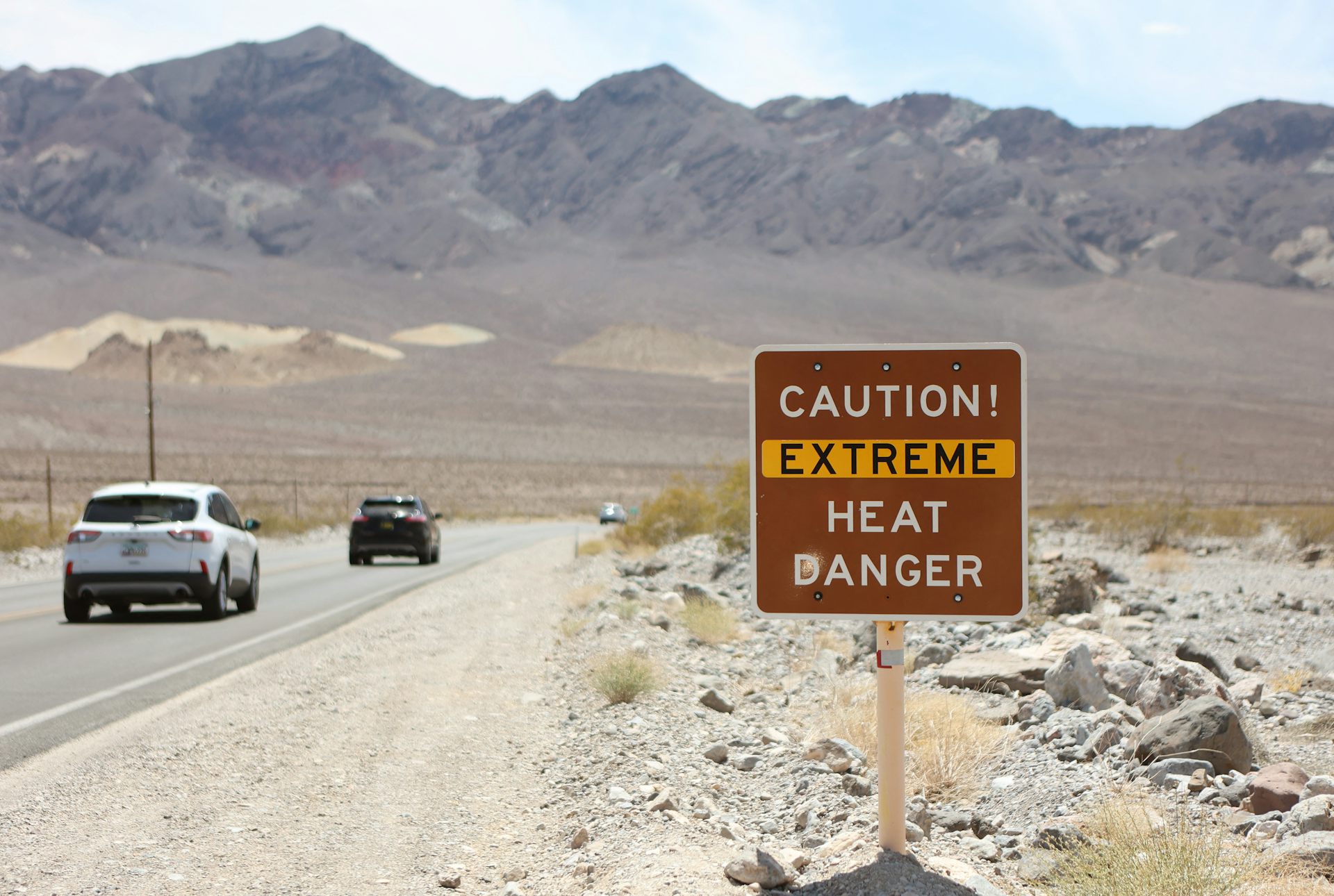Most surprising thing about a new report showing climate change imperils the US financial system is
A diverse group of experts including representatives of oil companies and banks unanimously agreed that climate change poses an existential threat to the financial system.

Burnt orange daytime skies signal that the consequences of climate change are already here. But while we tend to focus on the death and destruction resulting from the growing frequency and severity of wildfires and other disasters, we often pay less heed to the ways their costs ricochet through the financial system, with the potential for widespread collateral damage.
The wildfires raging in the West illustrate the problem. Their unprecedented damage has spooked insurance companies, which have raised rates, dropped coverage for high-risk properties and even walked away from markets entirely, depressing property values. This has forced states like California to step in and offer more coverage for affected residents. Beyond putting taxpayers on the hook, it could also lead to municipal bankruptcies, large bondholder losses and financial crises.
People in the West aren’t the only ones facing these problems. Droughts and floods are becoming more common in many regions, including my own state of Indiana, threatening crops, property and infrastructure while driving up insurance premiums.
As an expert on the impacts of climate change, I contributed to a recent report that examined what climate change means for the U.S. financial system. Our report includes many important findings and recommendations, perhaps most notably that the U.S. financial system is imperiled by climate change.
The report’s greatest significance, though, may be that it exists at all.
Unanimous agreement from a diverse group
The subcommittee I served on was formed last November by the Commodity Futures Trading Commission, the government agency that regulates complex financial instruments known as derivatives. This alone was a bit surprising given that the Trump administration, which appointed the commissioners, has been consistently hostile to efforts to fight or even assess the risks of climate change.
Our group included representatives from oil companies, agribusiness, banks, investment firms and environmental organizations, as well as a handful of academics like me. We were told to broadly assess the implications of climate change for the financial system and provide recommendations to the government. And we did, writing a 166-page report with dozens of recommendations, some of them potentially controversial, such as adding the costs of climate damage to the price of fossil fuels.
Remarkably, this diverse group unanimously voted to adopt the report and forward it to the Commodity Futures Trading Commission, which released it on Sept. 9.
Our key finding – and the one that underlies every recommendation – is this: Climate change, partly by increasing the risks and severity of wildfires, hurricanes and other disasters, poses a threat that permeates the U.S. financial system. And so the government needs to make climate-related risk more visible and prepare the financial system for disruptions.
Managing climate risks
Two types of risks are associated with climate change: physical and transition.
Physical risk has dominated the news lately in coverage of wildfires and storms. It’s simply the threat climate change poses to life, property and public health.
Just as smoke from the fires in the West has blown across much of the United States, the impacts of those fires, and other disasters, can drift through the U.S. financial system with cascading consequences.
Transition risk, on the other hand, is more about the costs associated with our responses to climate change, such as sudden shifts in policy or in people’s preferences and behaviors.
If governments took sudden, dramatic action to reduce the use of fossil fuels, through a high price on carbon or a stronger mandate, the values of the companies that find, extract, process and deliver those fuels could plummet. The companies susceptible to rapid devaluations as a consequence of government actions – or shifts in societal preferences – thus have high transition risk, which should accordingly reduce their value today.
Helping the system see the risks
However, for investors to take physical and transition risks into account, these risks have to be quantified and disclosed.
A first step, and the report’s most important recommendation, is that legislators should put a price on carbon emissions. The government currently subsidizes the cost of fossil fuels through tax breaks and other mechanisms. Incorporating the full cost of climate disruption into the price of these fuels would help redirect huge sums of money into climate-friendly technologies and industries.
But alone it’s not enough, since the climate is already being disrupted, and more needs to be done to help the financial system see and react to a variety of changing risks.
[Deep knowledge, daily. Sign up for The Conversation’s newsletter.]
The government can help banks and other financial companies do this by specifying how they should measure and report their financial risks from climate change. The government can also require publicly traded companies across all sectors to identify and report climate risk using transparent measurement techniques, so that investors trust the numbers, which need to be comparable across institutions and, ideally, sectors, so people can use them in decision-making.
The economic risks of climate change in the U.S. financial system are currently too hard for investors and regulators to see.
Illuminating them will help markets work to everyone’s benefit. First, this will lower the risk of a sudden market crash. Second, clear, comparable risk information will discourage investment in climate-disrupting activities and motivate economic actors to incentivize further solutions.
Jeffrey Dukes does not work for, consult, own shares in or receive funding from any company or organisation that would benefit from this article, and has disclosed no relevant affiliations beyond their academic appointment.
Read These Next
Colorectal cancer is increasing among young people, James Van Der Beek’s death reminds – cancer exp
Colon cancer symptoms can be subtle. While lifestyle changes can help reduce your risk, open communication…
Counter-drone technologies are evolving – but there’s no surefire way to defend against drone attack
Companies are selling a range of anti-drone devices, from guns that fire nets to powerful laser weapons,…
Trump says climate change doesn’t endanger public health – evidence shows it does, from extreme heat
Climate change is making people sicker and more vulnerable to disease. Erasing the federal endangerment…




